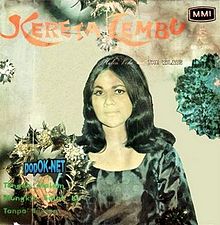Papilllon (1973)

Steve McQueen, the macho guy of the 70s is seen here acting out as Henri Charrière, a French convict, a safe-cracker accused wrongly of killing a pimp. The film narrates the friendship bond that he built during his incarceration in French Guiana and his escapades to escape from confinement, first from prison then from exile in Devil's Island.
By standing up for his fellow inmate, Louis Dega (Dustin Hoffman), a master forger and counterfeiter, they built a bond so strong that forms the basis of this movie.
Papillon is the French word for butterfly, the tattoo that Charrière wears on his chest, hence his nickname.

Steve McQueen, the macho guy of the 70s is seen here acting out as Henri Charrière, a French convict, a safe-cracker accused wrongly of killing a pimp. The film narrates the friendship bond that he built during his incarceration in French Guiana and his escapades to escape from confinement, first from prison then from exile in Devil's Island.
By standing up for his fellow inmate, Louis Dega (Dustin Hoffman), a master forger and counterfeiter, they built a bond so strong that forms the basis of this movie.
Papillon is the French word for butterfly, the tattoo that Charrière wears on his chest, hence his nickname.
Between cruelty in prison and solitary confinement, he still managed to plan a daring escape. Dega, the reluctant escapee, was quite content in believing that his beloved wife in France would fight for his release. (It never materialised till the end of the movie!)
 The attempt at escape was marred by fraudulent agents. A liaison with a group of lepers, they managed to ride a boat. The adventure continues with a group of Indians and later a stint at a monastery. He returns to prison afterwards when the Mother Superior alerts the authorities when his past deed is discovered.
The attempt at escape was marred by fraudulent agents. A liaison with a group of lepers, they managed to ride a boat. The adventure continues with a group of Indians and later a stint at a monastery. He returns to prison afterwards when the Mother Superior alerts the authorities when his past deed is discovered.
In his later years, he is relocated in Devil's Island where he is reunited with Dega and executes a successful escape to freedom!
McQueen, despite a not being the best surname to show masochism, exudes the aura of a typical testosterone filled silver screen. He apparently performed a daring stunt at the tail end of this film when he took a jump into the sea from a high cliff. For this effort, he was paid more than Hoffman who was riding high then with past laurels and had his name before Hoffman's on the credit!
The two main characters in the movie shows the nature of man in handling any adversity. Whilst some would plunge head-on to change their fate themselves, others would wait. They would leave others, fate, God, the legal process or natural justice to bail them out. Whichever modality is chosen, time is of essence. Is time on our side for change to take place or will we perish trying?
 The attempt at escape was marred by fraudulent agents. A liaison with a group of lepers, they managed to ride a boat. The adventure continues with a group of Indians and later a stint at a monastery. He returns to prison afterwards when the Mother Superior alerts the authorities when his past deed is discovered.
The attempt at escape was marred by fraudulent agents. A liaison with a group of lepers, they managed to ride a boat. The adventure continues with a group of Indians and later a stint at a monastery. He returns to prison afterwards when the Mother Superior alerts the authorities when his past deed is discovered.McQueen, despite a not being the best surname to show masochism, exudes the aura of a typical testosterone filled silver screen. He apparently performed a daring stunt at the tail end of this film when he took a jump into the sea from a high cliff. For this effort, he was paid more than Hoffman who was riding high then with past laurels and had his name before Hoffman's on the credit!
The two main characters in the movie shows the nature of man in handling any adversity. Whilst some would plunge head-on to change their fate themselves, others would wait. They would leave others, fate, God, the legal process or natural justice to bail them out. Whichever modality is chosen, time is of essence. Is time on our side for change to take place or will we perish trying?
.JPG)








